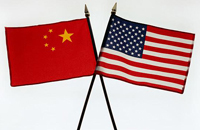
Tomorrowland is here, thanks to digitization of services
Digitization is fast becoming ubiquitous, widening the horizon for businesses to expand their service products. Gary Bridge, senior vice-president of Cisco Systems’ Internet division, took an audience of researchers and business leaders from 28 countries on a high-speed tour of these new opportunities at the 14th Annual Frontiers In Services conference, co-hosted by the W. P. Carey School’s Center for Services Leadership and the Center for Excellence in Service at the Robert H. Smith School of Business, University of Maryland. From digitally enhanced product marketing to remote service delivery to tele-robotic remote surgery, companies are using digitization to grow services revenues.






